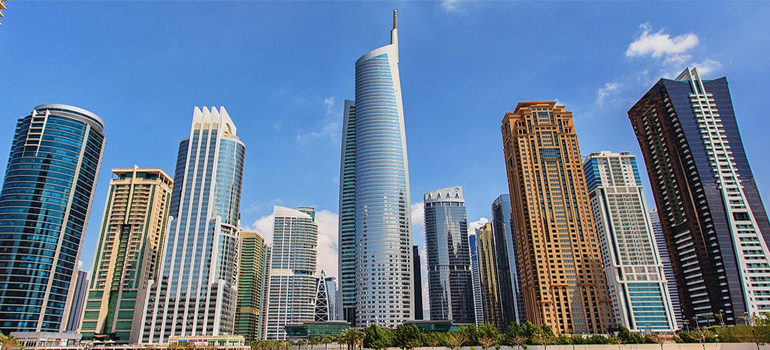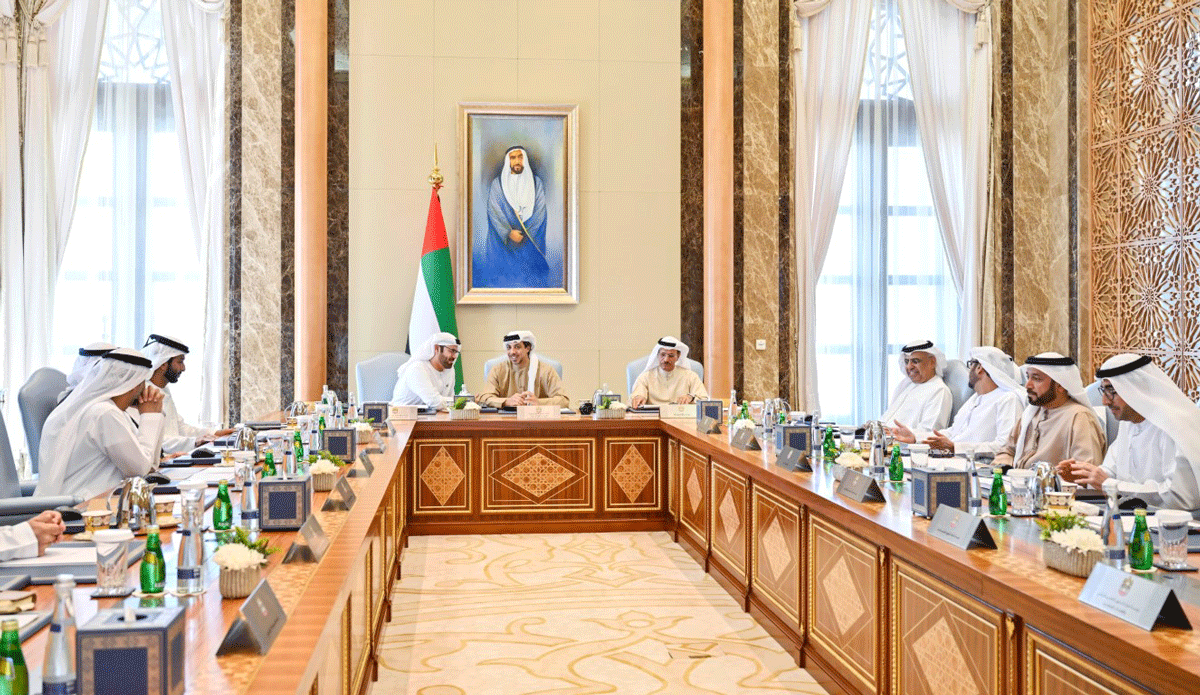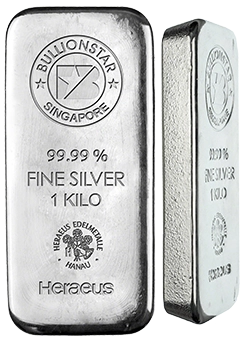In Ongoing Saga, Dubai Stands its Ground With the LBMA
Late last year in November 2020, the London Bullion Market Association (LBMA) caused a stir across global gold markets when the self-styled ‘independent authority for precious metals’ issued a non-public letter to 12 international major gold centres, which threatened to blacklist gold bullion from any country that failed to adhere to LBMA recommendations on gold sourcing, gold supply chains, cash transactions, and artisanal mining. At the time, this was covered in the BullionStar article “In Delusional Push, LBMA Threatens to Blacklist Entire Gold Trading Centres“.
While the LBMA letter was addressed to 12 gold centres namely India, Russia, China, United Arab Emirates (UAE), Turkey, Hong Kong, Japan, Singapore, South Africa, Switzerland, the US and UK, it quickly became apparent that the main target of the LBMA in London was the UAE.
This was confirmed by none other than the embedded LBMA reporter from Reuters in London, who wrote that “the LBMA letter did not target any centre in particular, but four people involved in drafting it told Reuters the gold industry in Dubai in the United Arab Emirates (UAE) was the main focus.”
Cartel-like Control by the LBMA
Not surprisingly, some of these international gold centres didn’t take kindly to being lectured from London on what they could and could not do, especially from an organization run by a cartel of the world’s most notorious bullion banks including JP Morgan and HSBC. This was most apparent in the public reaction from the UAE and Dubai’s gold sector, where Ahmed Sultan Bin Sulayem, executive chairman of the Dubai Multi Commodities Centre (DMCC), responded to the LBMA letter via an eye-opening post on LinkedIn in which he highlighted the growth and success of Dubai’s gold sector while questioning whether the LBMA’s motivation was one of self-serving concern over Dubai/UAE emerging as a competitive threat to London.

In a post that did not pull any punches, Bin Sulayem’s article covered everything from the cartel nature of the LBMA, to the identity of the LBMA’s less savory members, with such nuggets as:
“I wonder if anyone at LBMA is concerned about being sued by the World Trade Organisation or UK Courts for attempting to maintain its cartel-like control over an industry by imposing its own discretionary brand of blacklisting, without being a democratically elected trade body?”
and:
“Will LBMA apply the same ethical standards to its existing members and stakeholders including JPMorgan Chase, which admitted manipulating precious metals futures, resulting in a record-breaking spoofing settlement of $920m..?”
But that was just for openers, since Bin Sulayem’s November post then let loose about the very nature of the LBMA’s raison d’être and modus operandi, drawing parallels with the British Empire as a forceful coloniser:
“there is an increasing awareness that LBMA’s purpose has become one of industrial hegemony with an agenda to disrupt any centres that threaten its market share.”
“In a sense, LBMA’s approach is understandable, given its origins in a bygone era where control was seized, not negotiated and while the British Empire may have had the power to enforce its position a hundred years ago, it is certainly less compelling in today’s increasingly transparent marketplace.
Not letting up, the DMCC’s executive chairman wrapped up his post, concluding that:
“Perhaps it is time for the sun to set on LBMA and its delusional leadership in order for it to make way for an effective, untied, democratically elected regulator that functions under a policy of inclusion, not subjugation.”
Quite a response it has to be said, and all the more impactful in that it was written by the top gun of Dubai’s gold sector.
In light of @lbmaexecutive recent letter issued to countries with large #gold markets, it has been of great interest to speak with various stakeholders from around the world and hear their thoughts; read on to find out how delusional the #LBMA ishttps://t.co/gKOwAdDMWP
— ahmed binsulayem (@ahmedbinsulayem) November 18, 2020
For those who have readers of BullionStar articles, much of what the DMCC executive chairman had to say about the LBMA will look familiar. This is because we have, for a long time now, been highlighting similar themes as Bin Sulayem has highlighted – from the cartel-like nature of the LBMA (“LBMA needs reform to serve the physical precious metals market”), to the JP Morgan prosecutions (“LBMA Board Member & JP Morgan Managing Director Charged with Rigging Precious Metals“), to the origins of the LBMA as a bullion bank consortium under the auspices of the Bank of England (“Blood Brothers: The Bank of England and the London Bullion Market Association (LBMA)”).
And if the above post from Bin Sulayem has grabbed your attention, then you will be interested to know that that was not the end of the story, merely an opening gambit. Because in the months since November 2020, there has been further very interesting commentary from DMCC’s Bin Sulayem, which we will now look at here, as well as a number of developments in UAE’s gold sector.

Competition Emerges – A UAE Good Delivery Standard
First the developments in UAE’s gold sector. On 6 December 2020, UAE’s Ministerial Development Council held a meeting in Abu Dhabi chaired by the UAE deputy prime minister, Sheikh Mansour, on how to grow and govern UAE’s gold industry and expand its position as a global gold trading hub. Naturally, the LBMA’s letter from the previous month November would have been on the agenda, and its interesting to see how the UAE reacted.
Note that Dubai is not the UAE, merely one of the seven Emirates in the UAE. The seven UAE Emirates are Abu Dhabi, Dubai, Sharjah, Ajman, Ras Al Khaimah, Fujairah and Umm Al Quwain, with Abu Dhabi as the administrative capital of the UAE, and with Dubai and Abu Dhabi being the most populous Emirates.
The Ministerial Development Council meeting in Abu Dhabi was intriguing in that it discussed the introduction of a UAE Good Delivery Standard for wholesale gold bar settlement, a technical standard much like the LBMA’s London Good Delivery Standard. (Note that this a federal initiative to build on the already existing Dubai Good Delivery for gold which is run by the DMCC).
In the same meeting, the Council also proposed setting up an oversight committee to supervise UAE’s bullion market, as well as launching a UAE-wide (federal) platform for trading gold and tracking gold, and a database of all the major participants in the UAE gold market. Here we can see the UAE authorities probably being in some ways reactive to the LBMA letter, but also proactive in pursuing their own agenda so as to neutralize the LBMA attack.
A New Roundtable – Centred in Dubai
By February 2021, DMCC’s Bin Sulayem was back on LinkedIn, his preferred platform for publishing commentary, with a post dated 6 February, that begins with a description of the historical growth of trade routes and trade, and then continues, more subtly than in November, to respond to the LBMA:
“Fortunately, most of today’s criticism of Dubai is more of a petit bourgeois effort to discredit its reputation in the hope that traders will overlook the inadequate offerings and hypocrisy of the trading centres they conscientiously left behind. If anything, Dubai’s ongoing success, particularly in the precious metals and diamond markets, is a shining example of how the age of monopoly by fiat is over.”
“As a jurisdiction with a more rigorous level of compliance than its LBMA counterpart, Dubai Good Delivery is an internationally recognised standard that requires its members to adhere to responsible sourcing practices in accordance with the ‘DMCC Rules for Risk-Based Due Diligence for Gold and Precious Metals.’”
In this post, Bin Sulayem is at times still diplomatic to the LBMA, saying that “on a collaborative level, the UAE recently joined eleven other gold trading hubs, as per LBMA’s request in support of upholding higher industry standards”. He also comments on the UAE Good Delivery Standard saying that “Dubai Good Delivery is currently being assessed to become a Federal policy, meaning a nationwide, zero-tolerance approach to the illicit gold trade.”
However, the punchline of Bin Sulayem’s early February article comes when he reveals that the DMCC had by then already begun gathering a grouping of the “international community and industry stakeholders” (including airline body IATA) to discuss solutions on gold smuggling and hand carried gold on airlines, while he also called on all jurisdictions across the world that are serious about the issue to join up as well.
Notwithstanding the specific aim of this gathering and its proposals (about illicit gold), this move by Bin Sulayem to begin formations of gold market participants could be viewed as the genesis of a strategy to create a counterweight to the LBMA in London.
Back with a Vengeance
On 22 March, Bin Sulayem was back with another article posted in LinkedIn, in which he provided an update on the response to the DMCC’s invitation for a group gathering, and also let loose with further criticisms of the LBMA, this time in a very open manner similar to his November 2020 article.
Firstly, Bin Sulayem highlighted that he had successfully organized a very large meeting of high-level people from the global gold sector to discuss topics connected with illicit gold. This was referred to as a ‘roundtable’ of ‘seventy-eight industry leaders, reporters and government officials from around the world’, but which did not include the LBMA. In the words of Bin Sulayem:
“Notably absent was any representation from LBMA, who were busy being unavailable to comment on articles published in Reuters, Investment Week and Nasdaq, which highlighted a call from five civil society organisations (CSOs) for the European Union not to recognise its Responsible Gold Guidance (RGG) due to “serious shortcomings”.
The reference here to a public call from five CSOs (NGOs) refers to an open letter sent to LBMA CEO Ruth Crowell on 9 March which was signed by Global Witness, RAID, SwissAid, Fastenopfer and Society for Threatened Peoples and which claimed that there are “serious shortcomings" in LBMA’s Responsible Gold Guidance (RGG).
The NGOs also say that this LBMA RGG is not aligned with the OECD Due Diligence Guidance for Responsible Supply Chains since it “falls short of the required standard and should not be recognised“. The authors from the NGOs also claims that they “cannot have confidence that LBMA’s Good Delivery gold is free of human rights abuses and not linked to conflict and illicit trade”. See here for an Investment Week analysis of the NGO letter.

Bin Sulayem contines:
“If Ruth Crowell is serious about welcoming feedback from all stakeholders to help achieve fuller and better transparency, this would be an excellent place to start. I would further add that if what Ms. Crowell says is true about how “the LBMA programme leads the way for the gold market”, I am certainly not alone in thinking it is time for all of us to stop and consider alternative leadership and direction in the form of a wider, collaborative framework.”
While the DMCC executive chairman had taken a swipe at LBMA heavyweight JP Morgan in his November 2020 article, this time in March 2021 he chose fellow LBMA / LMPCL heavyweight HSBC:
“When looking at the organization more closely, LBMA’s moral flexibility ought not to be a surprise considering its Regulatory Affairs Committee Chair is a senior manager from ‘too big to jail’ , HSBC Plc, an institution that has consistently demonstrated that rules can be broken without the consequence of criminal prosecutions ever taking place.”
The @lbmaexecutive LBMA ‘s responsible #gold sourcing programme lacks credibility | Raid https://t.co/8XOtMcb7FG
— ahmed binsulayem (@ahmedbinsulayem) April 22, 2021
The Tables have Turned
And in a reference that will resonate with BullionStar readers about the LBMA’s lack of transparency, Bin Sulayem added that:
“As far as LBMA’s reluctance to actually collaborate, I struggle to share the outlook of an organisation that would willingly miss an opportunity to discuss important matters relating to their business, but still find the time to push out the same tired narrative, packed with affirmative cliches about “providing trust” or “enhancing transparency” in the hope that maybe the industry’s challenges will somehow just go away.
Anyone interested in the LBMA’s lack of transparency can find out more about this in numerous BullionStar articles such as “Central banks operating in stealth at the heart of the London Gold Market“, and “LBMA misleads Silver Market with False Claims about Record Silver Stocks”, and “Pay-to-Play: LBMA shows contempt for the wider Gold and Silver markets”. And that is just a small selection.
Getting back to Bin Sulayem’s March article, in a case of turning the tables which is sure to infuriate the LBMA, he then pulled no punches with this nugget:
“It is strange to think there was a time when certain London Good Delivery-approved refineries would automatically be granted Dubai Good Delivery status as a reflection of the institution’s portrayed credibility and ethical standards – today, Dubai cannot be seen to be taking such risks.”
And the punches keep coming. In another dig at the LBMA, Bin Sulayem calls for gold industry gatherings to be inclusive rather than exclusive, with the need for “understanding the full list of industry stakeholders” where “each should be given a seat at the table in finding a solution that works for the many and not the few.”
Bin Sulayem’s March post wraps up with the DMCC head confirming future round table discussions and further inviting all members of the global gold industry to take part.
And in the final paragraph he throws in yet another criticism of the LBMA, one which again may resonate with BullionStar readers who are familiar with the many articles about the LBMA where we have said likewise. For Bin Sulayem concludes that the DMCC:
“As an organization.. that.. called out LBMA for its hypocrisy repeatedly before being joined by other industry stakeholders who found the courage to say what they knew to be true, it would be fair to say that DMCC has defined reality in spite of the risk of sounding controversial or unpopular.”
Maybe it would also be fair to say that on the subject of the LBMA and its bulion bank members, BullionStar has also “defined reality in spite of the risk of sounding controversial or unpopular“. For in a time of LBMA deceit, telling the truth, be it the DMCC or BullionStar, is in some ways a revolutionary act. We also hope that others have “the courage to say what they know to be true“.
Popular Blog Posts by Ronan Manly
 How Many Silver Bars Are in the LBMA's London Vaults?
How Many Silver Bars Are in the LBMA's London Vaults?
 ECB Gold Stored in 5 Locations, Won't Disclose Gold Bar List
ECB Gold Stored in 5 Locations, Won't Disclose Gold Bar List
 German Government Escalates War On Gold
German Government Escalates War On Gold
 Polish Central Bank Airlifts 8,000 Gold Bars From London
Polish Central Bank Airlifts 8,000 Gold Bars From London
 Quantum Leap as ABN AMRO Questions Gold Price Discovery
Quantum Leap as ABN AMRO Questions Gold Price Discovery
 How Militaries Use Gold Coins as Emergency Money
How Militaries Use Gold Coins as Emergency Money
 JP Morgan's Nowak Charged With Rigging Precious Metals
JP Morgan's Nowak Charged With Rigging Precious Metals
 Hungary Announces 10-Fold Jump in Gold Reserves
Hungary Announces 10-Fold Jump in Gold Reserves
 Planned in Advance by Central Banks: a 2020 System Reset
Planned in Advance by Central Banks: a 2020 System Reset
 China’s Golden Gateway: How the SGE’s Hong Kong Vault will shake up global gold markets
China’s Golden Gateway: How the SGE’s Hong Kong Vault will shake up global gold markets






 Ronan Manly
Ronan Manly 0 Comments
0 Comments










